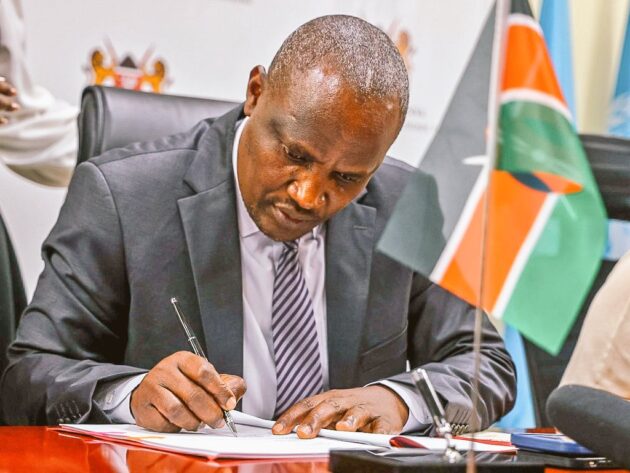
Mbadi Faults Parliament for Inadequate School Capitation Funding » Capital News
NAIROBI, Kenya, July 26 – National Treasury Cabinet Secretary John Mbadi has blamed Parliament for the persistent underfunding of school capitation, accusing lawmakers of approving education budgets that fall short of what is required to fully support learners.
Speaking at a thanksgiving ceremony in Suba South on Friday, Mbadi dismissed claims that the government had failed to disburse capitation funds, insisting that the Treasury had released all the money allocated in the approved budget. The problem, he said, lies in the inadequacy of the allocations themselves.
“We disbursed the entire amount allocated in the budget, but it’s still not enough. What I confirmed yesterday is that yes, we’ve given out what was budgeted—but that doesn’t mean it meets the actual need. We cannot give every child in Kenya the Sh22,000 required,” Mbadi said.
According to current policy, the government is expected to allocate Sh22,000 per year for every student in public day secondary schools, Sh15,000 for junior secondary students, and Sh1,400 for those in primary school.
However, Mbadi admitted that the Treasury has never fully met the Sh22,000 per-student target.
“If you divide the current budget by the number of secondary school students, it comes to about Sh17,000 per learner. That’s the reality—even during President Uhuru Kenyatta’s administration,” he noted.
The Treasury boss criticised MPs for demanding full capitation while cutting proposed allocations during budget deliberations.
“In fact, Parliament reduced the capitation we had proposed in the latest budget. Once the budget is passed, where do I get the extra money to pay the full Sh22,000?” he posed. “Whatever is allocated is paid in full. First and second terms have been settled. We are now preparing to pay for third term—but again, the money isn’t enough.”
Mbadi credited former President Mwai Kibaki with implementing free primary education, but clarified that it was President Uhuru Kenyatta who introduced free day secondary education.
“People say Kibaki offered free education, but he only did so at the primary level. It was Uhuru who started the free secondary school program,” he said.
Mbadi said school principals often complain about incomplete capitation disbursements because the total budget has never matched the policy target.
“That’s why you hear them say they haven’t received full capitation. The government has always released what was allocated—but it’s never enough,” he explained.
To bridge the gap, Mbadi proposed repurposing part of the National Government Constituencies Development Fund (NG-CDF), suggesting that a portion of its Sh21 billion bursary allocation be used to supplement capitation.
“If we are serious about full capitation, we could agree that 40 percent of the KSh58 billion NG-CDF, which is earmarked for bursaries, be used to top up capitation,” he said. “Then no student would need to go to their MP for bursary support because the government will have paid the full fees.”
He further proposed pooling all bursary funds from NG-CDF, the Government Affirmative Action Fund (GAAF), and county governments into a consolidated fund to ensure equitable support for all learners.
“We mop it up and put it in one basket to give every child in Kenya equal support. If anyone has a better idea, bring it forward. That is mine as the Treasury and Economic Planning Secretary,” he said.